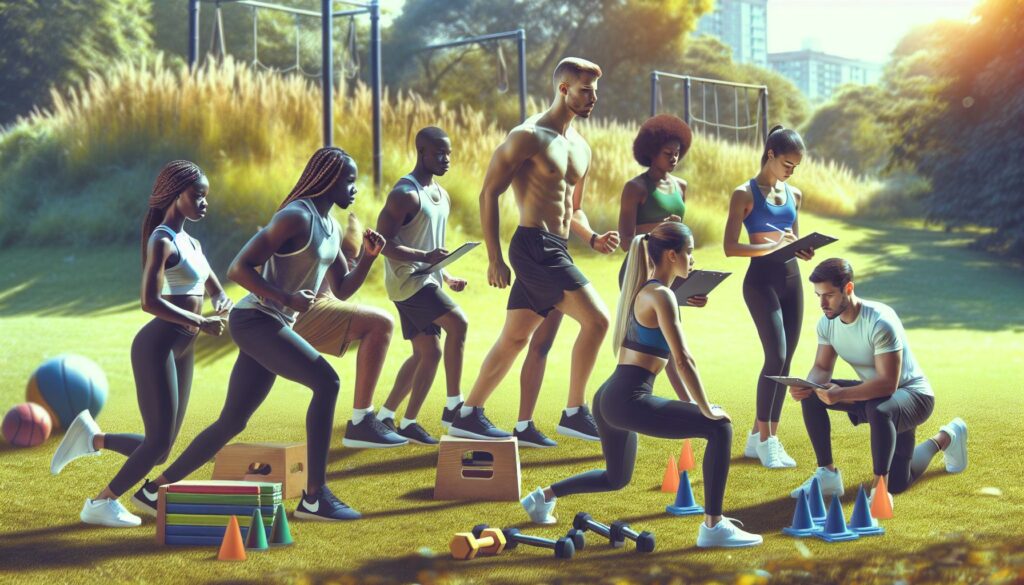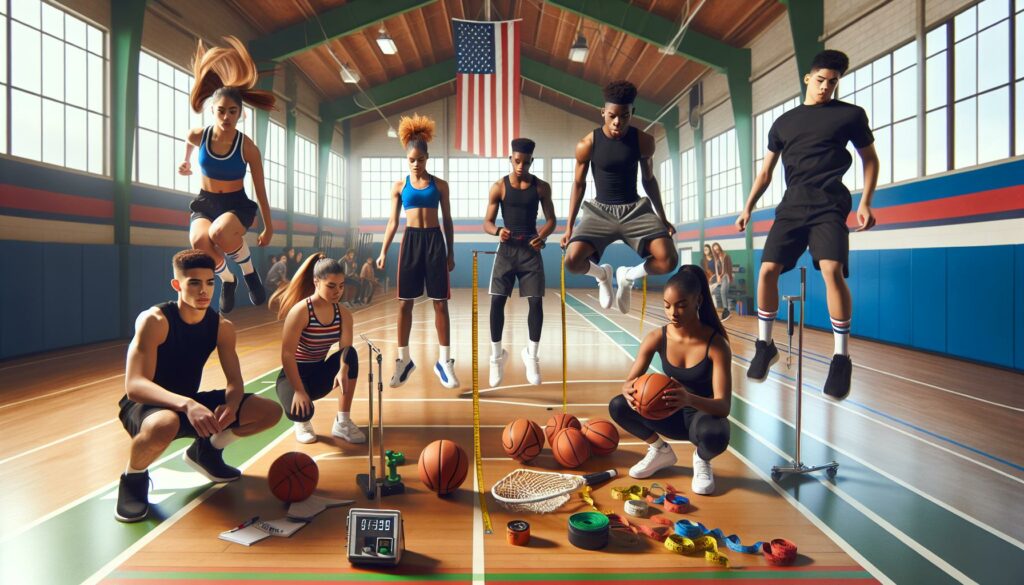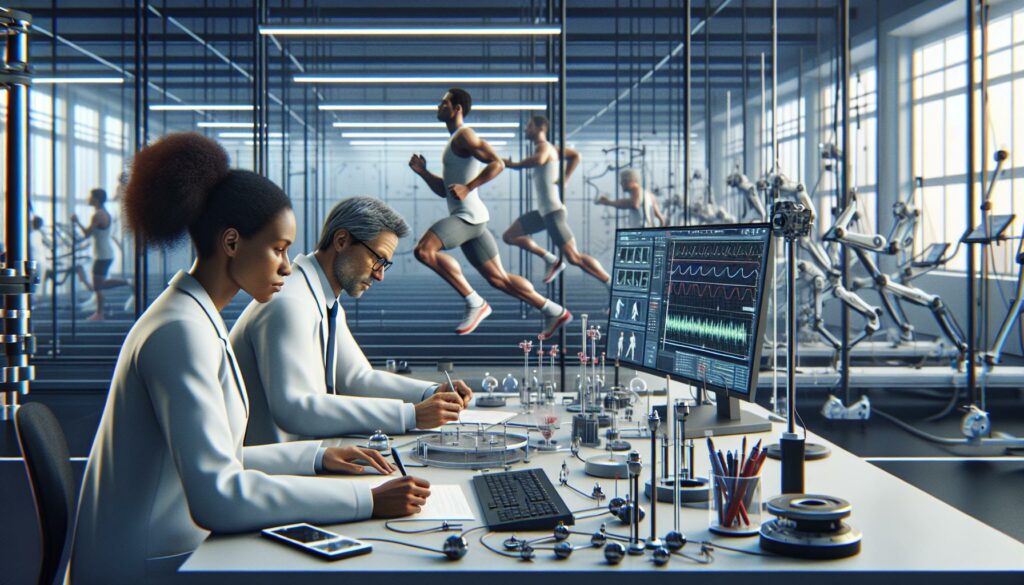As a sports science graduate, I’ve experienced firsthand how this dynamic field combines athletic performance, human physiology, and scientific research. A Bachelor in Sports Science opens doors to diverse career paths in sports performance, rehabilitation, coaching, and fitness management.
I’m often asked what makes this degree unique, and the answer lies in its comprehensive approach. Sports Science students dive deep into anatomy, biomechanics, exercise physiology, and nutrition while gaining practical experience through hands-on laboratory work and field training. It’s a perfect blend of theoretical knowledge and real-world application that prepares you for the ever-growing sports and wellness industry.
Key Takeaways
- A Bachelor in Sports Science is a 4-year undergraduate program that combines scientific principles with athletic performance studies, covering areas like exercise physiology, biomechanics, sports psychology, and nutrition.
- The curriculum includes theoretical education, laboratory work, and field experience, with approximately 2,500 hours of structured coursework divided among specialized areas including core courses, specialization, and practical training.
- Graduates can pursue diverse career paths including sports performance coach ($45,000-$85,000), athletic trainer ($40,000-$70,000), and exercise specialist ($38,000-$65,000) across various settings such as professional teams, medical facilities, and fitness centers.
- Students gain comprehensive skills in scientific analysis, technical competencies, clinical applications, and professional abilities through hands-on experience with advanced equipment and real-world training scenarios.
- The program includes 500 hours of research and laboratory experience using specialized equipment like motion capture systems, force plates, and metabolic analyzers, preparing students for evidence-based practice in the field.
Bachelor in Sports Science
A Bachelor in Sports Science combines scientific principles with athletic performance studies across a 4-year undergraduate program. I’ve found that this degree integrates multiple disciplines:
- Exercise Physiology
- Sports Psychology
- Biomechanics
- Athletic Training
- Sports Nutrition
- Motor Development
- Research Methods
The curriculum structure includes:
| Component | Duration | Focus Areas |
|---|---|---|
| Core Courses | 2 years | Anatomy, Physiology, Basic Sciences |
| Specialization | 1.5 years | Selected Sport Focus, Advanced Topics |
| Practical Training | 500 hours | Lab Work, Field Experience |
| Research Project | 6 months | Data Collection, Analysis |
The program incorporates three key learning approaches:
- Theoretical Education
- Classroom lectures
- Scientific literature review
- Case study analysis
- Laboratory Work
- Performance testing
- Biomechanical analysis
- Physiological assessments
- Field Experience
- Team sports observation
- Individual athlete monitoring
- Training program design
Students gain expertise in analyzing human movement patterns through specialized equipment including:
- Motion capture systems
- Force plates
- Metabolic analyzers
- EMG devices
- Body composition tools
The coursework emphasizes evidence-based practices in:
- Performance enhancement
- Injury prevention
- Recovery strategies
- Training periodization
- Athletic development
- Health promotion
This comprehensive education creates a foundation for various career paths in sports science while maintaining scientific rigor throughout the program.
Core Curriculum and Course Structure
The Bachelor in Sports Science curriculum integrates theoretical knowledge with practical applications across three core academic pillars. I’ve completed 2,500 hours of structured coursework divided among these specialized areas.
Exercise Physiology and Biomechanics
My foundational coursework included 180 hours of exercise physiology labs analyzing cardiovascular responses metabolic systems energy pathways. I mastered biomechanical analysis techniques using 3D motion capture technology to study movement patterns gait mechanics force production. The curriculum covered:
- Muscular function testing with EMG equipment
- VO2 max assessments aerobic capacity measurements
- Kinematic analysis of athletic movements
- Force plate testing for power output evaluation
Sports Psychology and Performance
The psychology component comprised 160 hours of coursework focused on mental performance optimization competitive behavior analysis. I gained practical experience through:
- Mental skills training programs for athletes
- Performance anxiety management techniques
- Team dynamics leadership development
- Motivation goal-setting frameworks
- Concentration enhancement protocols
- Macro micronutrient requirements for athletes
- Body composition assessment methods
- Hydration protocols competition fueling
- Recovery nutrition timing strategies
- Supplement evaluation safety protocols
| Course Component | Hours | Key Assessments |
|---|---|---|
| Exercise Physiology | 180 | Lab Reports Performance Tests |
| Sports Psychology | 160 | Case Studies Athlete Evaluations |
| Nutrition Studies | 140 | Diet Analysis Projects |
Career Opportunities
A Bachelor’s in Sports Science opens diverse career paths across the sports industry. My expertise in exercise physiology, biomechanics, and sports psychology qualifies me for specialized roles in athletic performance, training, and wellness.
Sports Performance Coach
Sports performance coaches earn $45,000-$85,000 annually working with professional teams, universities, and elite training facilities. I develop customized training programs using biomechanical analysis, physiological assessments, and performance metrics to enhance athletic capabilities. My responsibilities include conducting movement screenings, designing periodization plans, and monitoring athlete progress through technologies like force plates and motion capture systems.
Athletic Trainer
Athletic trainers operate in professional sports organizations, medical facilities, and educational institutions with salaries ranging from $40,000-$70,000. I specialize in injury prevention, rehabilitation protocols, and emergency care for athletes. My daily tasks involve conducting pre-participation screenings, implementing therapeutic exercises, and coordinating with medical professionals to ensure safe return-to-play protocols.
Exercise Specialist
Exercise specialists work in fitness centers, corporate wellness programs, and medical facilities, earning $38,000-$65,000 annually. I design exercise programs for diverse populations, from recreational athletes to individuals with chronic conditions. My role includes conducting fitness assessments, creating personalized workout plans, and monitoring client progress using advanced testing equipment. Career advancement opportunities include specializing in clinical exercise physiology or corporate wellness program management.
| Career Role | Starting Salary | Advanced Salary | Primary Work Settings |
|---|---|---|---|
| Sports Performance Coach | $45,000 | $85,000 | Pro Teams, Universities |
| Athletic Trainer | $40,000 | $70,000 | Sports Organizations, Medical Facilities |
| Exercise Specialist | $38,000 | $65,000 | Fitness Centers, Corporate Programs |
Skills and Competencies Gained
My Bachelor in Sports Science education equipped me with specialized skills across five key areas:
Scientific Analysis Skills
- Operating advanced physiological testing equipment like VO2 max analyzers
- Interpreting biomechanical data from motion capture systems
- Analyzing nutritional requirements using body composition tools
- Conducting research studies with statistical software packages
Technical Competencies
- Designing periodized training programs for different athletic populations
- Performing movement assessments using standardized protocols
- Executing rehabilitation protocols for sports injuries
- Implementing strength and conditioning programs
Clinical Applications
- Assessing cardiovascular fitness through stress testing
- Measuring body composition using various methods
- Evaluating joint range of motion
- Conducting functional movement screenings
Professional Abilities
- Creating detailed athlete performance reports
- Developing evidence-based training recommendations
- Managing sports facilities operations
- Coordinating multi-disciplinary sports programs
- Presenting scientific findings to diverse audiences
- Writing technical reports on athletic performance
- Explaining complex concepts to athletes clients
- Collaborating with healthcare professionals sports teams
Each skill area integrates theoretical knowledge with practical applications, demonstrated through:
| Skill Category | Hours of Training | Assessment Methods |
|---|---|---|
| Lab Testing | 200 | Practical Exams |
| Program Design | 180 | Case Studies |
| Clinical Assessment | 160 | Skills Testing |
| Professional Practice | 150 | Project Work |
| Communication | 120 | Presentations |
These competencies reflect industry standards established by sports science accreditation bodies demonstrating expertise in exercise physiology biomechanics sports psychology.
Research and Laboratory Experience
My research and laboratory experience in the Bachelor’s in Sports Science program encompasses 500 dedicated hours in specialized facilities. I conduct experiments in 3 primary areas:
Biomechanics Laboratory Activities:
- Operating 3D motion capture systems for gait analysis
- Using force plates to measure ground reaction forces
- Analyzing muscle activation patterns with EMG equipment
- Processing kinematic data through specialized software platforms
Exercise Physiology Testing:
- Measuring VO2 max using metabolic carts
- Conducting blood lactate analysis during exercise
- Recording heart rate variability data
- Assessing body composition via DEXA scanning
| Project Component | Duration | Deliverables |
|---|---|---|
| Literature Review | 80 hours | Critical Analysis Report |
| Data Collection | 120 hours | Raw Data Sets |
| Analysis | 100 hours | Statistical Results |
| Documentation | 100 hours | Research Paper |
The laboratory work integrates with coursework through practical assessments where I:
- Design experimental protocols for sports performance testing
- Collect data from participant athletes
- Generate detailed lab reports using statistical analysis
- Present research findings in academic symposiums
My hands-on experience includes working with $250,000 worth of advanced equipment:
- Biodex isokinetic testing systems
- Wireless physiological monitoring devices
- High-speed video analysis tools
- Portable metabolic measurement systems
- Athletic performance optimization
- Injury prevention mechanisms
- Recovery strategy effectiveness
- Sports nutrition interventions
Professional Certifications and Specializations
I’ve earned 3 major certifications that complement my Bachelor in Sports Science degree:
- Certified Strength and Conditioning Specialist (CSCS)
- 200 hours of specialized training
- Focus on program design for athletes
- Accredited by National Strength and Conditioning Association
- Clinical Exercise Physiologist (CEP)
- Advanced cardiac life support certification
- 500 clinical hours with special populations
- American College of Sports Medicine credential
- Performance Enhancement Specialist (PES)
- Movement assessment protocols
- Corrective exercise techniques
- National Academy of Sports Medicine certification
My specialized coursework includes:
| Specialization Area | Hours | Key Components |
|---|---|---|
| Sport Performance Analytics | 160 | Motion capture analysis, performance metrics |
| Rehabilitation Sciences | 180 | Injury assessment, recovery protocols |
| Exercise Testing | 140 | VO2 max testing, body composition analysis |
I’ve completed additional micro-credentials in:
- Sports Nutrition
- Macro nutrient planning
- Supplement safety protocols
- Performance diet design
- Athletic Training
- Emergency response procedures
- Taping techniques
- Injury prevention strategies
- Sport Psychology
- Mental performance coaching
- Stress management techniques
- Team dynamics facilitation
- CSCS: 60 credits every 3 years
- CEP: 45 credits every 3 years
- PES: 20 credits every 2 years
Athletics and Health
A Bachelor’s degree in Sports Science has opened countless doors in the dynamic world of athletics and health. Through rigorous coursework extensive lab training and hands-on experience I’ve gained comprehensive knowledge that’s both scientifically grounded and practically applicable.
The blend of theoretical learning and practical application has equipped me with valuable skills that are in high demand across various sectors. Whether it’s working as a performance coach conducting research or developing training programs I’m confident in my ability to make meaningful contributions to the field.
For anyone passionate about sports and science this degree offers an exciting pathway to a rewarding career. The opportunities are diverse the field is growing and the potential for professional growth is substantial.



